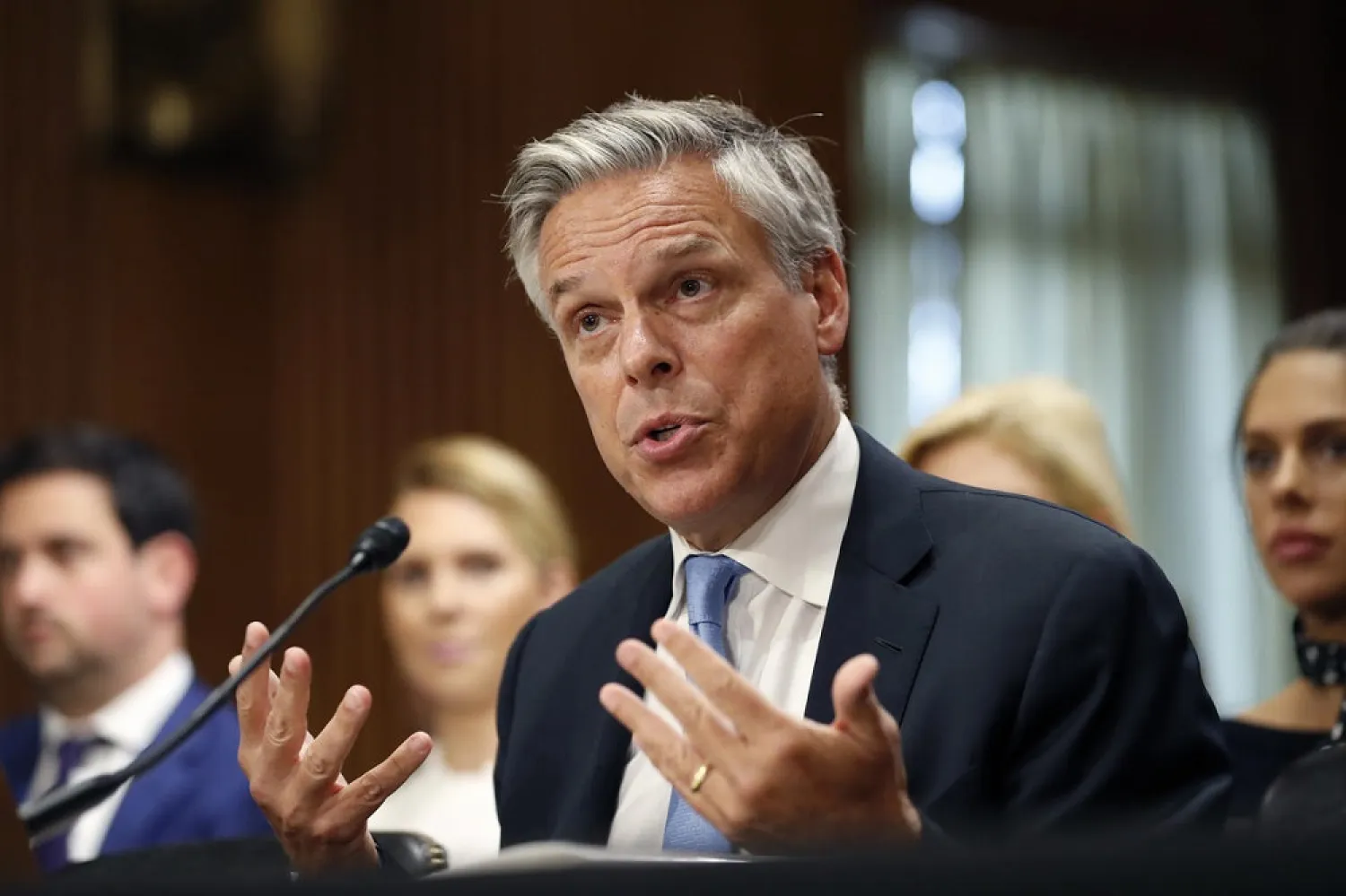The new US ambassador to Russia presented on Tuesday his credentials to President Vladimir Putin in what the Kremlin hoped would pave the way for a new phase of ties between Washington and Moscow.
Kremlin spokesman Dmitry Peskov made the comments to reporters in a conference call ahead of Jon Huntsman presenting his diplomatic credentials to Putin.
“We hope that, headed by the new ambassador, the US diplomatic mission to Russia will be able to significantly contribute to repairing the damage done by Washington’s actions to our relations,” said Peskov.
Huntsman, a former Utah governor, has twice served as ambassador.
He was the nation's top diplomat to Singapore under President George H.W. Bush and ambassador to China under President Barack Obama before returning to the US to run for president in 2012.
He was confirmed as ambassador to Russia by the US Senate at the end of last month.
Huntsman takes on the post in Moscow as congressional committees and special counsel Robert Mueller investigate allegations that Russia sought to influence the 2016 US presidential election on Trump’s behalf, as well as potential collusion with Moscow by Trump associates.
Moscow denies such activity and Trump dismisses any talk of collusion.
Huntsman said at his confirmation hearing that there was no question Russia interfered during the 2016 campaign.
The latest chapter in the tense American-Russian ties emerged on Monday when the foreign ministry in Moscow threatened retaliation over the “hostile and illegal” break in of US officials into residences at Russia’s consulate in San Francisco.
Russian staff had left the consulate last month, after Washington ordered Moscow to vacate some of its diplomatic properties.
Since then, US officials had occupied administrative parts of the compound but on Monday they entered residential areas that the departing staff had locked, the ministry said in a statement.
“Despite our warnings, the US authorities did not listen to reason and did not give up their illegal intentions,” it said.
“...We reserve the right to respond. The principle of reciprocity has always been and remains the cornerstone of diplomacy.”
Footage aired repeatedly on Russian state television showed what the broadcaster said were US officials breaking locks that had sealed off parts of the compound and entering the buildings.
The “intruders” had taken over the whole premises including the consul general’s residence, the ministry said.
“Therefore, we understand that Americans, breaking into our diplomatic buildings, have de facto agreed that their missions in Russia may be treated likewise.”
Putin last month accused Washington of “boorish” treatment of Russia’s diplomatic premises on US soil, ordering the foreign ministry to take legal action over alleged violations of Russia’s property rights.









